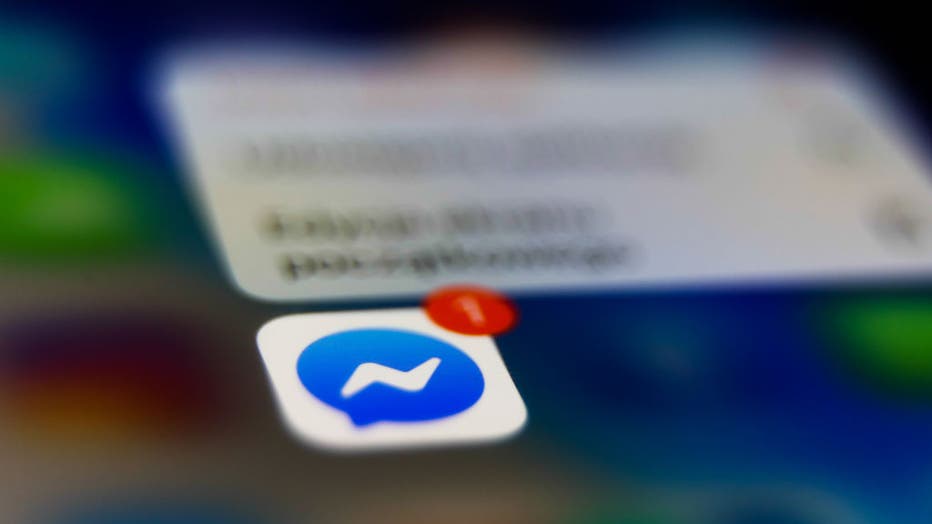Scam alert: HHS warns of fake social media accounts promising COVID-19 grant money
LOS ANGELES - The Office of the Inspector General for the U.S. Department of Health and Human Services is warning the public of yet another COVID-19-related scam.
According to a fraud alert newsletter shared on Nov. 23, scammers are creating fake social media accounts or hacking existing ones and sending direct messages to people while posing as friends or a government employee.
The imposter claims that the victim is eligible for government grants due to COVID-19, disability or other health-related reasons and sends them a phone number to call with the promise of money.
Once the victim calls the number provided, they are asked to pay a “processing fee” with either bank account information, gift cards or Bitcoin in order to receive the fake grant. And in turn, their money — sometimes in large amounts — is stolen.

FILE - Messenger icon is seen displayed on phone screen in this illustration photo taken in Poland on July 26, 2020. (Photo illustration by ) (Jakub Porzycki/NurPhoto via Getty Images)
“Fraudsters are also continuing to offer COVID-19 tests to Medicare beneficiaries in exchange for personal details, including Medicare information. However, the services are unapproved and illegitimate,” according to the newsletter.
In addition to the COVID-19 grant scam, another scheme involves medical labs that target retirement communities with fake COVID-19 tests. The victims will actually go to the clinics, have their blood drawn, and those labs then bill federal health care programs for unnecessary medical services, the newsletter continued.
There have even been instances where scammers offer a $200 Medicare prescription card, which, according to HHS, does not exist.
RELATED: FTC reports surge of social media scams amid COVID-19 pandemic
The public is being warned by the agency about scammers targeting victims in a number of ways, which include “telemarketing calls, text messages, social media platforms, and door-to-door visits.”
“These scammers use the coronavirus pandemic to benefit themselves, and beneficiaries face potential harm. The personal information collected can be used to fraudulently bill Federal health care programs and commit medical identity theft. If Medicare or Medicaid denies the claim for an unapproved test billed by a fraudster, the beneficiary could also be responsible for the cost,” the newsletter concluded.
In the first six months of the pandemic, reported losses reached a record total of $117 million to COVID-19 scams that started on social media, the FTC said in October. The top sources of the complaints were online sellers that did not deliver, romance scammers and fake phone calls asking for financial assistance.
People also reported to the FTC a high volume of direct messages over social media, particularly Facebook and Instagram, that pretended to offer monetary grants in light of the pandemic — but were actually trying to get money, personal information, or both.
To report any potential COVID-19 scams to HHS, click here.
Hyeji Suh contributed to this report.


